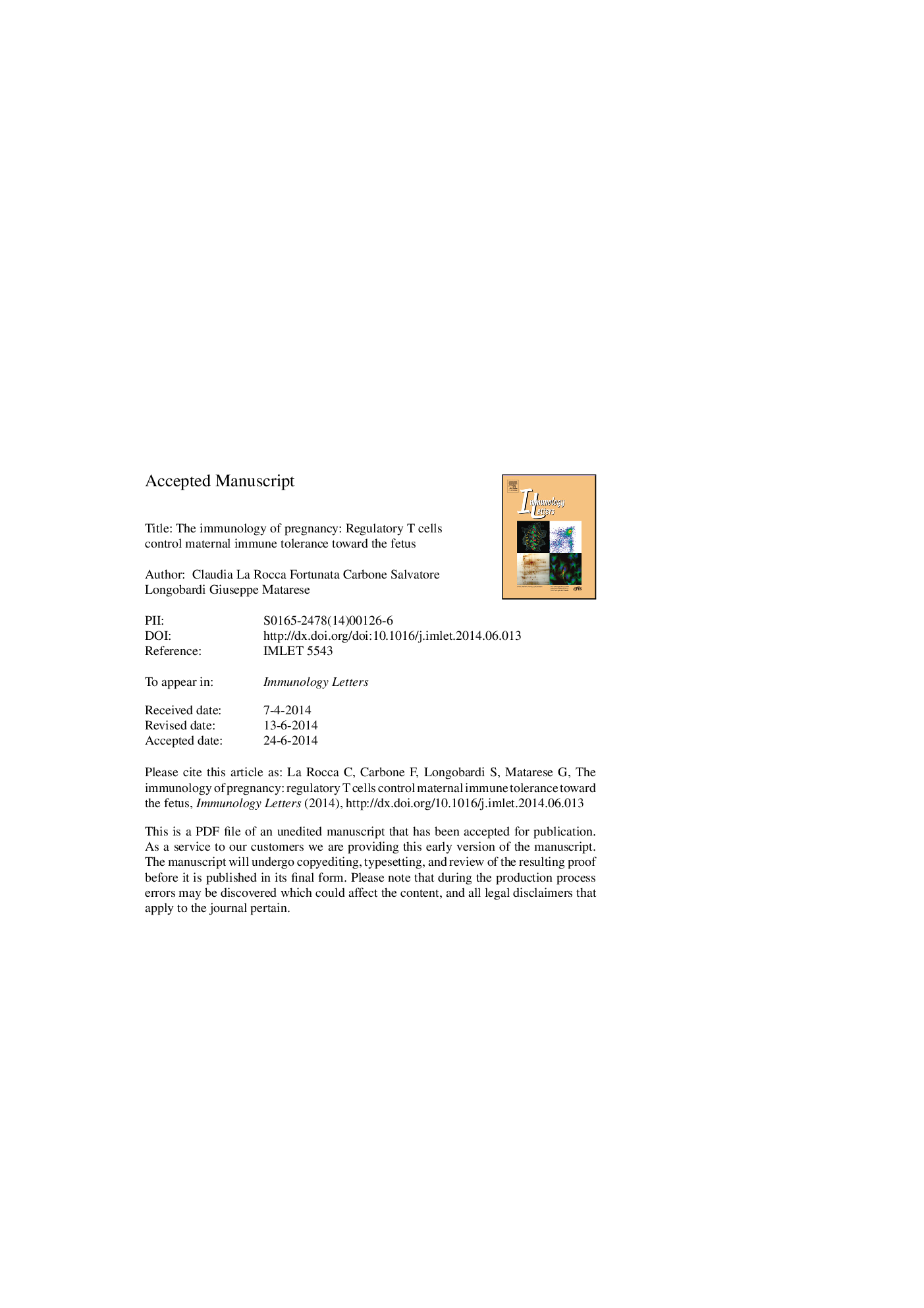| Article ID | Journal | Published Year | Pages | File Type |
|---|---|---|---|---|
| 6117181 | Immunology Letters | 2014 | 37 Pages |
Abstract
Establishment and maintenance of pregnancy represents a challenge for the maternal immune system since it has to defend against pathogens and tolerate paternal alloantigens expressed in fetal tissues. Regulatory T (Treg) cells, a subset of suppressor CD4+ T cells, play a dominant role in the maintenance of immunological self-tolerance by preventing immune and autoimmune responses against self-antigens. Although localized mechanisms contribute to fetal evasion from immune attack, in the last few years it has been observed that Treg cells are essential in promoting fetal survival avoiding the recognition of paternal semi-allogeneic tissues by maternal immune system. Several functional studies have shown that unexplained infertility, miscarriage and pre-clampsia are often associated with deficit in Treg cell number and function while normal pregnancy selectively stimulates the accumulation of maternal forkhead-box-P3+ (FoxP3+) CD4+ Treg cells with fetal specificity. Some papers have been reported that the number of Treg cells persists at elevated levels long after delivery developing an immune regulatory memory against father's antigens, moreover these memory Treg cells rapidly proliferate during subsequent pregnancies, however, on the other hand, there are several evidence suggesting a clear decline of Treg cells number after delivery. Different factors such as cytokines, adipokines, pregnancy hormones and seminal fluid have immunoregulatory activity and influence the success of pregnancy by increasing Treg cell number and activity. The development of strategies capable of modulating immune responses toward fetal antigens through Treg cell manipulation, could have an impact on the induction of tolerance against fetal antigens during immune-mediated recurrent abortion.
Related Topics
Life Sciences
Immunology and Microbiology
Immunology
Authors
Claudia La Rocca, Fortunata Carbone, Salvatore Longobardi, Giuseppe Matarese,
